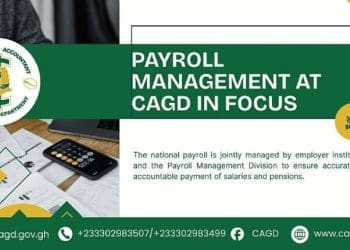“A business without a Board is like a ship sailing without a compass—it may move, but it’s directionless.”
In Ghana’s dynamic and often volatile economic landscape, Small and Medium Enterprises (SMEs) play a pivotal role.
They account for more than 85% of employment and contribute nearly 70% of the nation’s GDP (Ghana Statistical Service, 2023). Yet, despite their importance, many SMEs are managed as one-person entities—where the owner or founder makes all the decisions, controls all finances, and determines the company’s direction without structured oversight.
This approach, while understandable in the start-up phase, has proven unsustainable for long-term growth and resilience.
The Missing Piece: Corporate Governance and Boards
At the heart of sustainable business success lies good corporate governance, and one of its cornerstones is the Board of Directors. A Board is not a ceremonial structure reserved for large corporations-it is a mechanism that provides strategic oversight, accountability, and long-term direction.
In simple terms, a Board acts as a strategic compass, helping the owner navigate complex market realities, regulatory changes, and financial uncertainties.
It offers perspectives that challenge assumptions, ensuring decisions are not made impulsively but with deliberation and foresight.
Why boards matter for SMEs
Strategic direction and accountability
A properly constituted Board helps set the strategic vision of the business.
It ensures that the founder’s passion is guided by structured thinking and measurable goals.
Boards hold management accountable, ensuring that decisions are not based solely on emotions or immediate pressures.
Access to expertise and networks
Boards bring together professionals from diverse backgrounds—finance, law, marketing, governance, and industry specialists. This collective wisdom provides invaluable insights that a single entrepreneur may lack. Moreover, Board members often open doors to new investors, suppliers, and markets.
Risk management and sustainability
Ghana’s business environment is turbulent, marked by fluctuating exchange rates, rising operational costs, and limited access to credit.
A Board helps SMEs build resilience by instituting risk management frameworks, ensuring that the business can withstand economic shocks.
For example, during the COVID-19 pandemic, SMEs with Boards were more adaptable, quickly pivoting business models, managing cash flow prudently, and maintaining employee morale through crisis leadership.
Investor confidence and funding opportunities
Investors and financial institutions are increasingly concerned about governance structures.
The Bank of Ghana’s 2022 report on Non-Performing Loans identified weak corporate governance as a major factor in SME loan defaults.
A well-structured Board signals to investors and lenders that the enterprise is managed transparently and responsibly, enhancing its creditworthiness and access to funding.
Succession planning and business continuity
One of the major reasons Ghanaian SMEs collapse when the founder retires or dies is the absence of succession planning. Boards play a critical role in establishing systems that ensure the business continues beyond its founder—protecting employees, customers, and investors.
Case in Point: Lessons from successful Ghanaian SMEs
Companies like Kasapreko Company Limited, Special Ice Company, and Niche Cocoa Industry Limited have shown that adopting governance structures early enhances resilience.
Though they started small, these businesses transitioned from founder-managed to Board-governed institutions, allowing them to scale up, attract investors, and compete internationally.
How SMEs can start building boards
Start small but strategic
A Board can begin with 3–5 members who bring complementary skills.
Separate ownership from management
Even if family-run, introduce independent directors to ensure objectivity.
Develop a governance charter
Define roles, responsibilities, and decision-making processes clearly.
Engage professionals
Institutions like the Chartered Institute of Restructuring and Insolvency Practitioners, Ghana (CIRIP-Ghana) and the Institute of Directors-Ghana (IoD-Ghana) provide governance advisory and board training services tailored for SMEs.
Regular evaluation
Boards should undergo annual performance evaluations to ensure they remain effective and aligned with the company’s goals.
The bigger picture: Boards as pillars of economic resilience
When SMEs adopt structured governance through Boards, the ripple effect strengthens the broader Ghanaian economy.
It reduces business failure rates, enhances employment security, and improves tax contributions. Most importantly, it nurtures a culture of integrity, transparency, and sustainability.
In a period of rising inflation, unstable currency, and global uncertainty, SMEs need more than passion and hard work—they need governance discipline. A Board is not a luxury; it is a strategic necessity.
“Ghana’s SMEs must evolve from owner-driven to institutionally governed enterprises. Boards are not just for the big players—they are the very foundation of business survival and profitability.”
References
- Ghana Statistical Service (2023). Annual Report on SMEs and Employment Contribution in Ghana.
- Bank of Ghana (2022). Report on Non-Performing Loans and Corporate Governance in the SME Sector.
- Institute of Directors-Ghana (2021). Corporate Governance Code for SMEs.
- OECD (2020). Corporate Governance Principles for Small and Medium Enterprises.
- World Bank Group (2022). Strengthening SME Governance for Sustainable Growth in Africa.
By DIVINE AKOTIA
The author is a Certified Governance Auditor. He is currently the National President of International Human Rights Protection Service-Ghana (IHRPS-Ghana)
divineakotia2014@gmail.com














